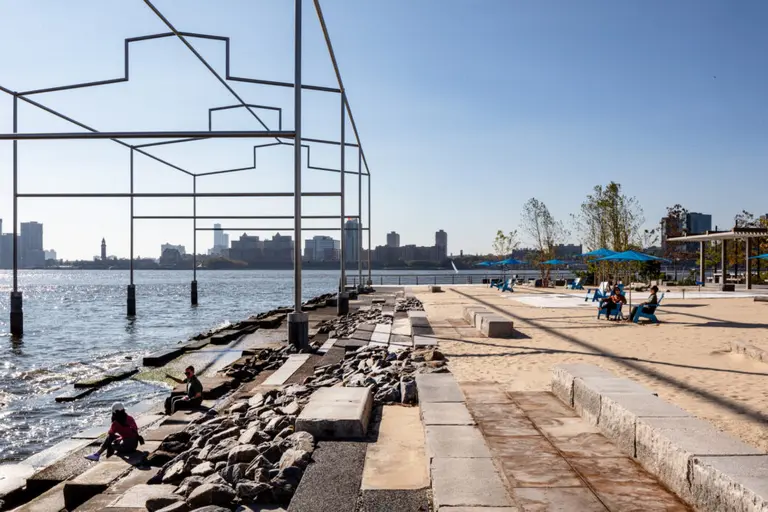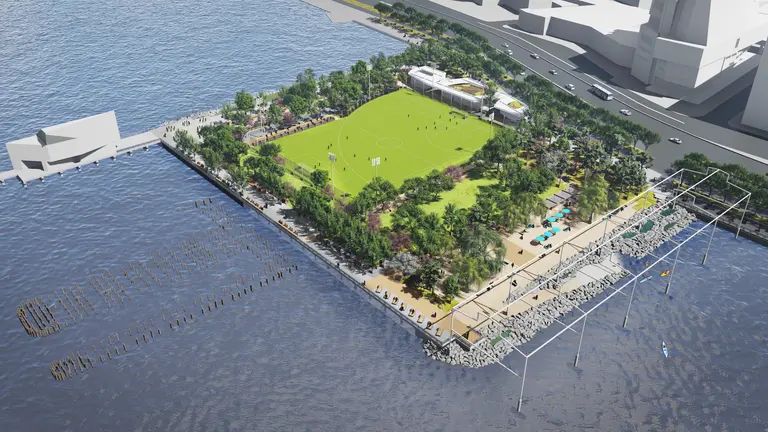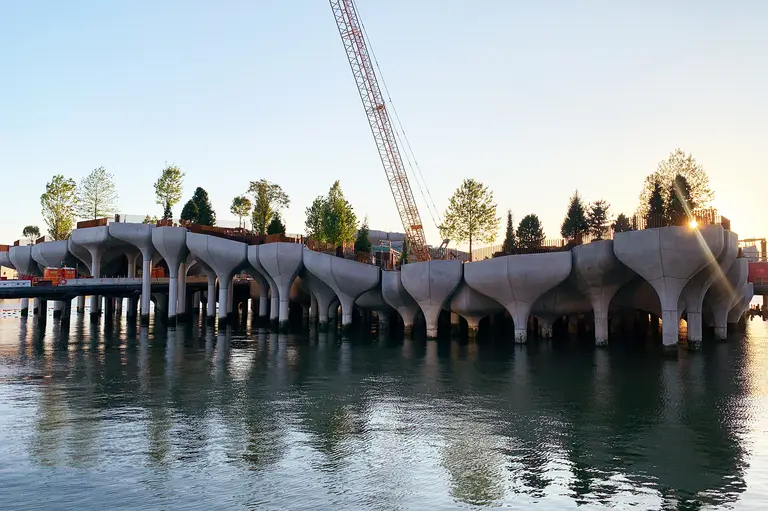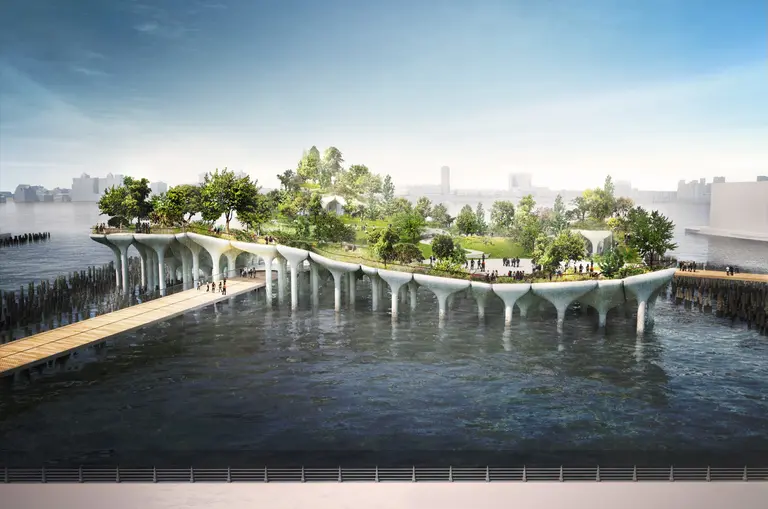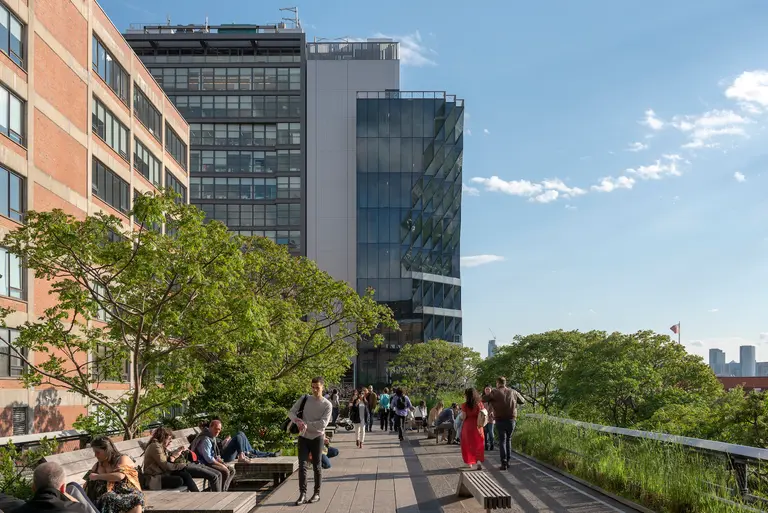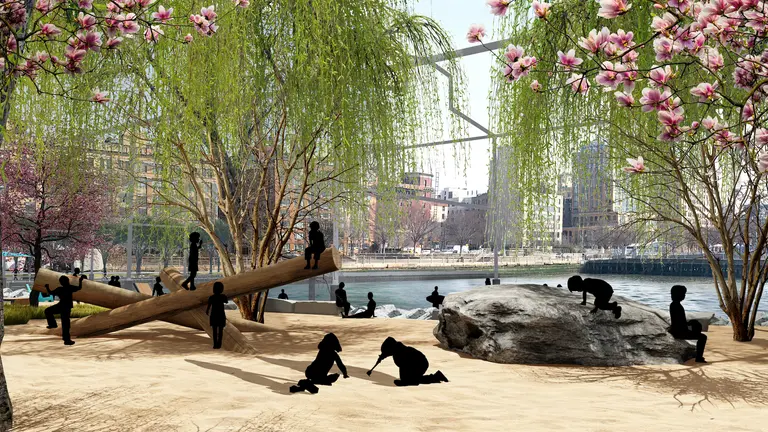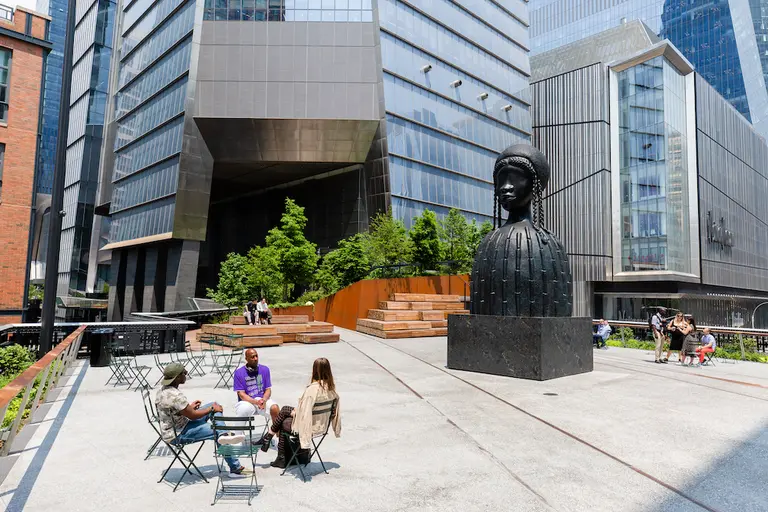Barry Diller pulls the plug on $250M Pier 55 offshore park
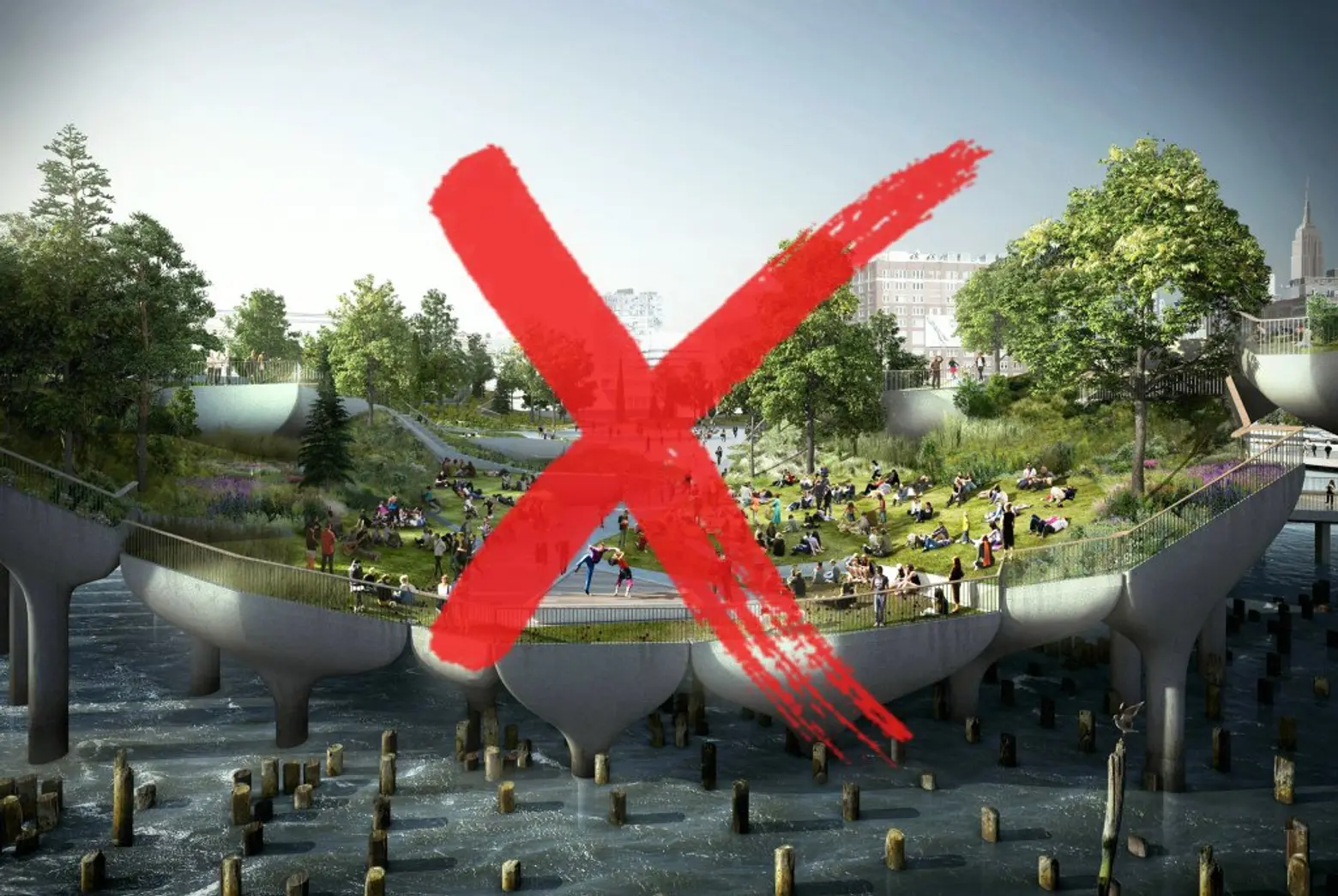
Photo: Pier 55, Inc./Heatherwick Studio.
Barry Diller, the billionaire chairman of IAC, announced he’s killing the $250 million project that promised to bring a futuristic offshore park and cultural site to the Hudson River’s dilapidated Pier 54. 6sqft previously covered the unfolding saga of the ill-fated project, known as Pier 55 (or sometimes as “Diller Park”), as opposing factions continually blocked its progress and were eventually revealed to be funded by prominent New York real estate developer Douglas Durst. According to the New York Times, Diller said Wednesday that his commitment to build the undulating pier would be coming to an end—an inglorious one for a bold plan that some, and certainly Diller himself, saw as a new Manhattan waterfront icon to rival the nearby High Line.
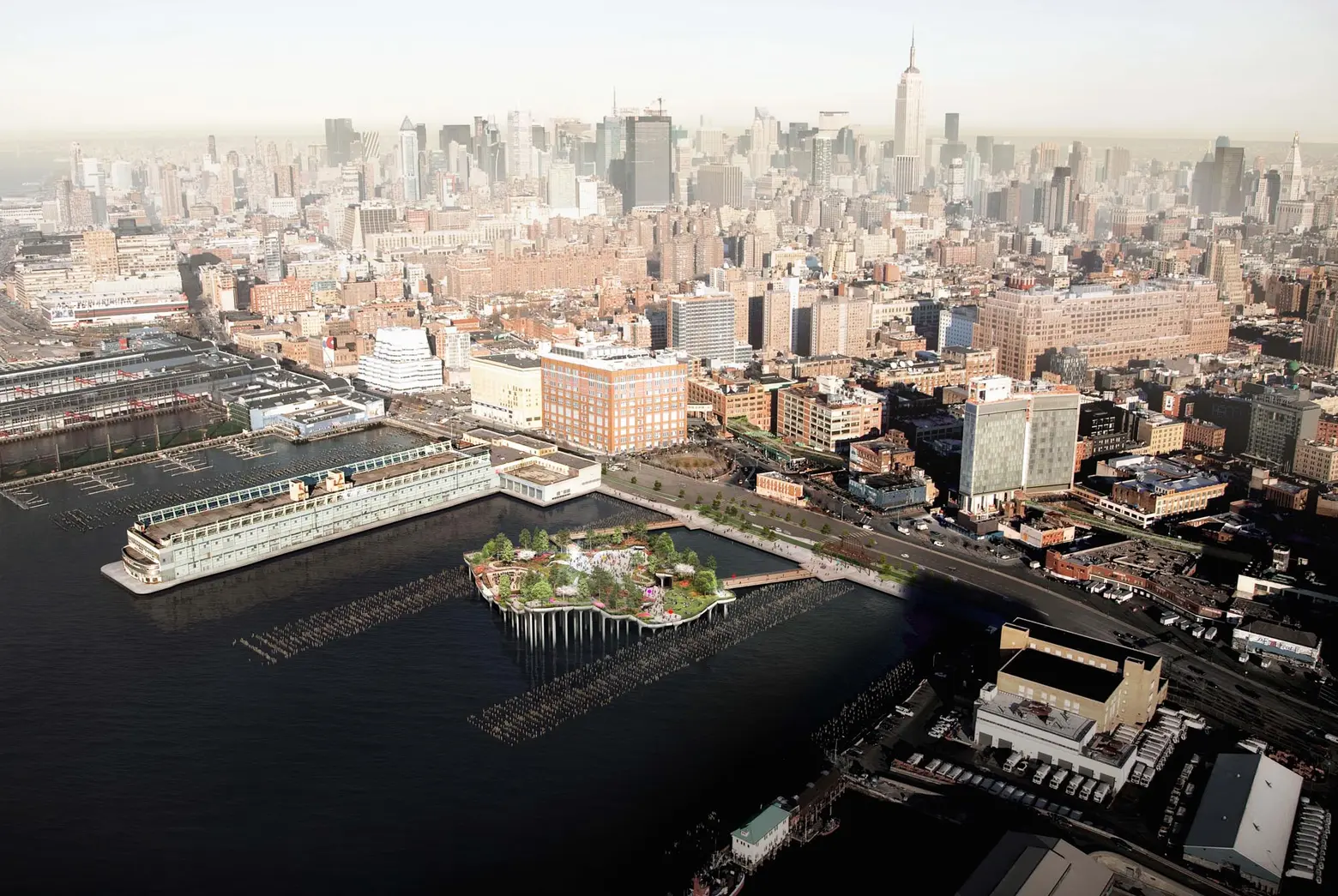
Rendering of Pier 55. Photo: Pier 55, Inc./Heatherwick Studio.
Diller finally threw in the towel after protracted settlement discussions between the project’s overseers, the Hudson River Park Trust, and the City Club of New York, a small, little-known group that was revived in recent years by a group of activists who wanted to fight zoning changes under the Bloomberg administration. The group was revealed to be underwritten in their efforts to stop the project by rival mogul Douglas Durst of the Durst real estate family. The Durst Organization are the developers of One World Trade Center, 4 Times Square, and Bjarke Ingels’ pyramid-shaped Via 57 West among many others.
The 875-foot Pier 54 at 13th Street on Manhattan’s west side was basically collapsing into the Hudson. Announced in 2014, the idea of a futuristic cultural park on the site of the decaying pier, first suggested by Diana Taylor, chairwoman of the Hudson River Park Trust, gained the support of the community board and elected officials including Mayor de Blasio, Senator Chuck Schumer, and Governor Andrew Cuomo. The first cost estimate was $35 million. As the Times puts it, “The first lawsuit arrived seven months later.”
Diller commissioned a futuristic structure that would be designed by Thomas Heatherwick and underwritten by himself and his wife, fashion designer Diane von Furstenberg. The park would have been perched on pilings in the river and would have offered an amphitheater and two open landscaped areas for staging performances. The cost soared to more than $250 million due in part to delays caused by legal wrangling over the pier’s spot in a protected estuary, among other issues.
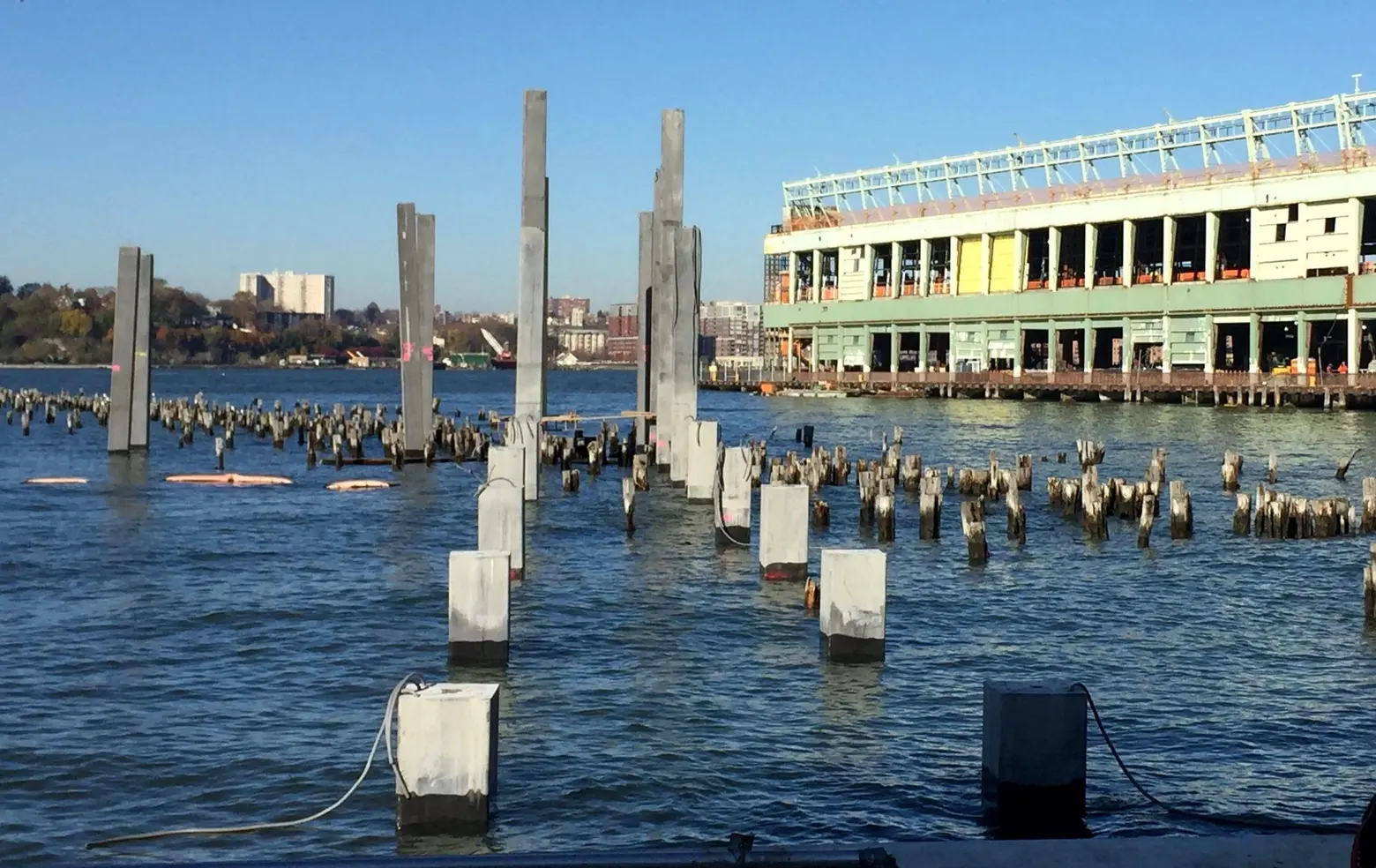
View from November 2016 of the 535 concrete support columns that were to support the 2.75-acre park, via 6sqft
President of the Hudson River Park Trust Madelyn Wils said in a statement that she was “deeply saddened” by the decision, “not simply because this would’ve been one of the world’s greatest piers, but because this was a project the community so resoundingly wanted, and that millions would one day enjoy.” Senator Schumer expressed frustration as well: “For such a small group of people to hold up a public and philanthropic project that would benefit so many is just awful.”
Diller appeared “visibly distressed” during an interview in which he explained that “Because of the huge escalating costs and the fact it would have been a continuing controversy over the next three years I decided it was no longer viable for us to proceed.” In an email he sent to backers of the project, Diller said that he had only wanted to provide “a beautiful park on a dazzling pier for New Yorkers and visitors from around the world to stroll and wander, to be entertained, to be stimulated, to be playful, and to have the most wonderful time in a unique setting” and was saddened that a “tiny group of people had used the legal system to essentially drive us crazy and drive us out.”
The opposition–the City Club and two activists, Tom Fox and Rob Buchanan–have taken up sometimes random-seeming issues like the alleged lack of transparency around the project and its potential danger to a protected estuary. 6sqft previously reported that–ironically, given the opposition’s accusations of secrecy– Durst had been secretly financing the opposition until Diller publicly accused him of bankrolling the hecklers last year amid the culmination of years of lawsuits, media battles, a stop-work order and numerous court dates.
Diller grew discouraged amid suggestions from family members that the family fortune might be put to better use on other projects. To people who had labored over the project for as many as six years, Diller wrote in an email, “I am so sorry.”
[Via NYTimes]
RELATED:



